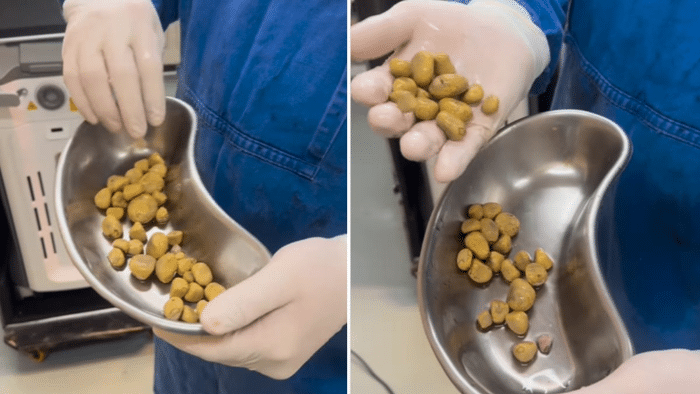A well rounded, healthy diet should be nutrient rich and should include all of the vitamins and minerals you need. Understanding what vitamins are important and where to find them will help you understand what should go into your diet and whether you might need supplements.
Featured Image VIA
Vitamin A
Vitamin A is vital to your healthy vision and immune system. There are also strong antioxidant properties in Vitamin A, which means having enough Vitamin A in your diet is a way to protect your cells from some of the environmental toxins that are linked to causing cancer, heart disease, and other serious medical problems.
Vitamin A is found in a variety of foods and is generally easy to get enough of unless you eat a very nutrient poor diet or have some other kind of medical issue that makes absorbing vitamin A difficult, such as pancreatic disease. Foods like dairy products, green leafy vegetables, and meats like liver are particularly rich in Vitamin A. Your body also makes Vitamin A out of beta-carotene like carrots, sweet potatoes, and cantaloupe.
Vitamin C
Vitamin C is one of the most well known vitamins, by name. However, fewer people know that Vitamin C is a key building block for the body’s blood vessels, bone collagen, and cartilage. It also helps with healing and helps with iron storage and absorption. Vitamin C has also been shown to protect your cells from cigarette smoke and harmful radiation from the sun.
Your body does not produce Vitamin C, which means you have to be sure you get enough in your diet. Although Vitamin C is most associated with citrus fruits, it’s also found in berries, tomatoes, peppers, potatoes, broccoli, spinach, and other crunchy green vegetables.
If you eat a diet that does not include many fruits or vegetables, if you smoke, or if you have any kind of disorder that limits how well your body absorbs nutrients, you might consider taking a Vitamin C supplement. If a Vitamin C deficiency gets extreme, it can cause a disease called scurvy.
Vitamin D
Vitamin D is essential for strong bones. It’s the nutrient that allows calcium, the primary component of bones, to be absorbed. Vitamin D is anti-inflammatory. It also has antioxidant and neuroprotective attributes that are important to your immune system, muscles, and brain.
Unfortunately, even though Vitamin D is extremely important to human health, it is not found in many foods. It occurs naturally in fish containing a high level of fat, like sardines and salmon, but people more commonly get it by eating foods fortified with Vitamin D, such as milk and cereal. Your body makes Vitamin D as it absorbs sunlight, but this is not typically a reliable way to get enough Vitamin D, for most people.
Because getting enough Vitamin D isn’t always easy for people, and many of the health risks associated with not having enough of this vitamin are serious, it is often advisable to take a Vitamin D blood test to determine whether you need to take supplements.
Vitamin E
Vitamin E is important for the health of your blood, brain, skin, vision, and reproduction. It’s found in many foods, such as many oils and nuts. Because Vitamin E is so common, most people who eat a reasonably healthy diet get plenty of it.
Vitamin K
Vitamin K is found in green leafy vegetables like kale and spinach, some fermented foods, and some oils like canola and soybean. Your body uses Vitamin K to help make the proteins needed for your blood to clot and to build your bones. Because Vitamin K passes through your body fairly quickly, it’s unlikely to build up to toxic levels.
Thiamine
Thiamine’s other name is Vitamin B-1. Thiamine is vital for the growth and function of cells. It helps your body create energy from the food you eat. Most people get enough Thiamine through their diets because it is found in so many foods, including pork, brown rice, yeast, beans, and in fortified foods like breakfast cereal.
Riboflavin
Riboflavin, also called Vitamin B-2, aids in cell growth, transforming food into energy, and helping to break down fats, steroids, and other medications. It is found in dairy products, eggs, meat, chicken and fish. Your body naturally produces a very small amount of Vitamin B-2 as well.
Niacin
Niacin, also named Vitamin B-3, helps turn your food into energy. It also is one of the nutrients that is useful in skin, nervous system, and digestive health. Yeast, meat, and cereal grains all contain Vitamin B-3. Niacin is also associated with healthy cholesterol.
Pantothenic Acid
Pantothenic acid, or Vitamin B-5, works with the enzymes in your body to break down the fatty acids in your diet. Your body makes some pantothenic acid naturally in your gut, but not enough to meet all of your needs. Foods containing Vitamin B-5 include beef, chicken, mushrooms, avocados, nuts, seeds, milk, and organ meats.
Biotin
B-7 is more commonly known as biotin. It is a water soluble vitamin that helps your enzymes break down fats, carbohydrates, and proteins in your diet. The foods that are highest in biotin are beef liver, eggs, salmon, pork, beef, sunflower seeds, almonds, tuna, spinach, and broccoli.
Vitamin B6
Vitamin B-6 plays a big role in the health of your nervous system, immune system, and brain development. Most people who eat a healthy diet and are able to absorb the nutrients they eat get through their diets. People who have certain autoimmune disorders or are dependent on alcohol may not be able to absorb enough just from what they eat. Side effects of not getting enough Vitamin B-6 can be anemia, depression, and a weak immune system. Poultry, fish, potatoes, chickpeas, and bananas are good sources of Vitamin B-6, as are fortified cereals.
Vitamin B12
Your body uses Vitamin B-12 to help form red blood cells and DNA. It also assists in developing nerve and brain cells. Vitamin B-12 is naturally found in foods that come from animals, like meat, dairy products, fish, poultry, and eggs. You can also find it in fortified foods.
Folate
Folate, or Vitamin B-9, is required for growing healthy cells and red blood cells. It is especially important to women who are pregnant because it is used in the fetus’s brain and spine development. Foods rich in folate include citrus fruits, dark leafy green vegetables, beans, bananas, nuts, berries, and melons.















